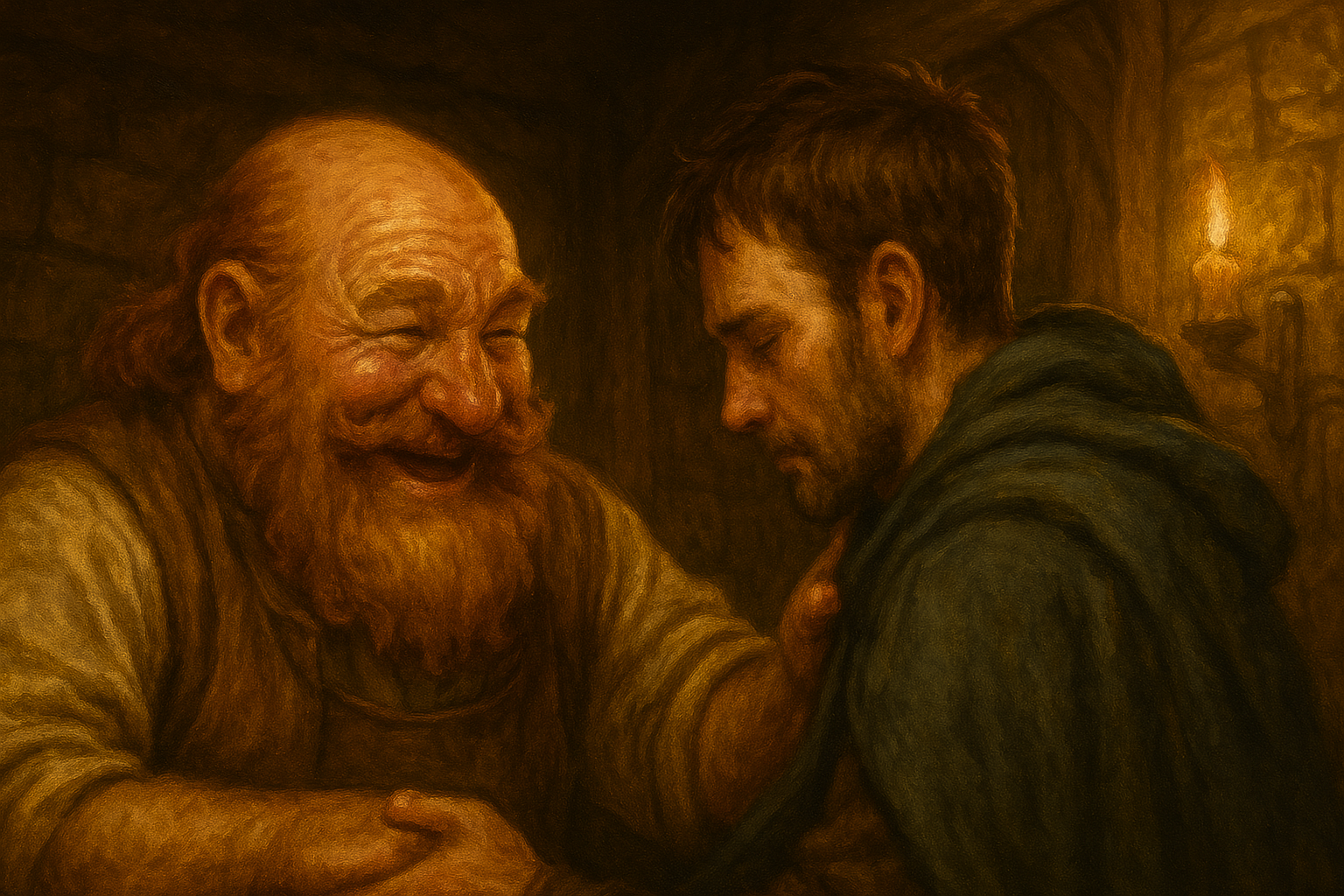Don’t Let Annoyance Turn Into Resentment. Forgive, Lad, But Don’t Be a Doormat
Mike’s Opening Rant: Every Party’s Got a Goblin
Lemme tell ya about Thrain. Played a gnome bard who chewed loud, hoarded dice, and made fart jokes every third turn. Drove the wizard mad. Drove me mad.
But y’know what else he did?
He showed up. He tried. He meant well.
Sure, he interrupted scenes. Forgot his spells. Played a kazoo in the middle of a eulogy. But he wasn’t tryin’ to ruin the game — he was just... bein’ a loud, greasy, lovable goblin.
And the day someone snapped at him — shouted in front o’ the whole table — it broke him. Lad never came back. And we never laughed the same way again.
SOME FOLKS NEED CORRECTION, AYE — BUT THEY DON’T NEED PUBLIC SHAMIN’, EXILE, OR A DAMN SPECTACLE.
Fix the Table — Don’t Flip It Over
👉 At Mike’s Tavern, we care about the group and the growth. Learn to spot problems, solve ‘em with kindness, and keep the story strong. Start in Tavern Etiquette or check how real characters learn and evolve in Player Builds & NPCs.
Annoyance Ain’t a Crime — It’s a Signal
So someone talks too much. Roleplays too hard. Forgets their gear. Or insists on making sound effects for every arrow.
It’s annoying, sure. But it ain’t evil.
Most of the time, that behavior comes from nerves, excitement, or not knowin’ better. That’s fixable. That’s human.
What’s not fixable is turnin’ cold. Eye-rollin’. Mockin’ ‘em. Goin’ quiet and lettin’ yer bitterness rot the whole table.
Forgive — But Don’t Fester
Here’s the trick: ya can forgive a thousand annoyances without lettin’ ‘em slide forever.
Don’t lash out in-game.
Don’t confront ‘em mid-session.
Don’t humiliate ‘em in front of the group.
Instead:
Pull ‘em aside after.
Speak kind, but clear.
Focus on what’s helpful for the party — not just what irritates you.
And if you’re not the GM? Then it ain’t yer job to fix it alone. Tell the GM privately. Let them handle it. Or offer to help, quiet-like.
Forgiveness Ain’t Weakness — It’s Leadership
The strongest players are the ones who can endure a little discomfort for the good of the game. They see past the surface. They know when to shrug it off — and when to gently say, “Hey, could we try it a little different next time?”
Want an example?
The Goblin Cleric Who Hates Healing (But Does It Anyway) — cranky, yes. But always comes through.
Captain Nail, the Law in Broken Armor — strict, but never cruel.
The Tiefling Who Was Never Really There — patient, thoughtful, always present.
They forgive. But they don’t ignore. That’s the difference.
FAQ
Q: What if I’ve had enough?
A: Then say so — with respect. But say it alone, not in front of others.
Q: What if they never improve?
A: Then maybe bring in the GM. Or bow out of that group kindly. Don’t burn the tavern down over one bad cup o’ tea.
Q: Shouldn’t I call it out mid-game?
A: Only if it’s breakin’ the game or hurtin’ folks. Otherwise, wait. Cool down. Approach gently.
A Good Table’s Built on Grace, Not Grudges
👉 Mike’s Tavern stands for second chances — but not secondhand cruelty. If yer learnin’ to lead with patience, yer already doin’ it right. Visit Player Tips | Talk to Mike

